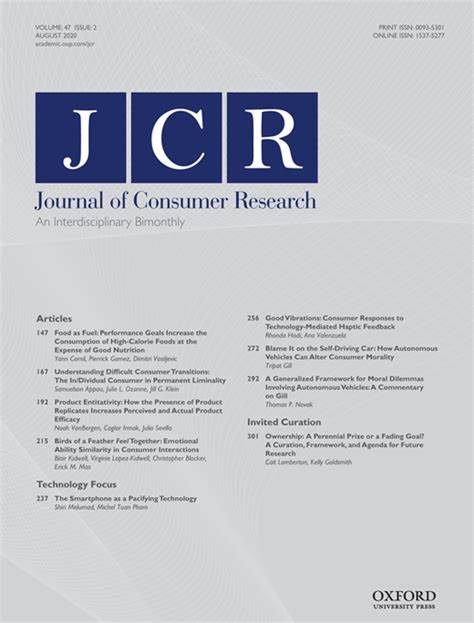Paper Meets Plastic: The Perceived Environmental Friendliness of Product Packaging
IF 6.4
1区 管理学
Q1 BUSINESS
引用次数: 3
Abstract
Abstract Packaging waste makes up more than 10% of the landfilled waste in the United States. While consumers often want to make environmentally friendly product choices, we find that their perceptions of the environmental friendliness of product packaging may systematically deviate from its objective environmental friendliness. Eight studies (N = 4,103) document the perceived environmental friendliness (PEF) bias whereby consumers judge plastic packaging with additional paper to be more environmentally friendly than identical plastic packaging without the paper. The PEF bias is driven by consumers’ “paper = good, plastic = bad” beliefs and by proportional reasoning, wherein packaging with a greater paper-to-plastic proportion is judged as more environmentally friendly. We further show that the PEF bias impacts consumers’ willingness to pay and product choice. Importantly, this bias can be mitigated by a “minimal packaging sticker” intervention, which increases the environmental friendliness perceptions of plastic-only packaging, rendering plastic-packaged products to be preferable to their plastic-plus-paper-packaged counterparts. This research contributes to the packaging literature in marketing and to research on sustainability while offering practical implications for managers and public policy officials.纸与塑料:产品包装的环境友好性
在美国,包装垃圾占填埋垃圾的10%以上。虽然消费者往往希望做出环境友好的产品选择,但我们发现他们对产品包装环境友好性的感知可能会系统性地偏离其客观环境友好性。8项研究(N = 4,103)记录了感知到的环境友好(PEF)偏见,即消费者判断带有额外纸张的塑料包装比没有纸张的相同塑料包装更环保。PEF偏见是由消费者“纸=好,塑料=坏”的信念和比例推理驱动的,其中纸与塑料比例较大的包装被认为更环保。我们进一步发现,PEF偏差影响消费者的支付意愿和产品选择。重要的是,这种偏见可以通过“最小包装贴纸”干预来减轻,这增加了仅塑料包装的环境友好性,使塑料包装的产品比塑料加纸包装的产品更可取。本研究有助于包装文献在市场营销和可持续发展的研究,同时提供实际意义的管理人员和公共政策官员。
本文章由计算机程序翻译,如有差异,请以英文原文为准。
求助全文
约1分钟内获得全文
求助全文
来源期刊

Journal of Consumer Research
BUSINESS-
CiteScore
12.00
自引率
9.70%
发文量
53
期刊介绍:
Journal of Consumer Research, established in 1974, is a reputable journal that publishes high-quality empirical, theoretical, and methodological papers on a wide range of consumer research topics. The primary objective of JCR is to contribute to the advancement of understanding consumer behavior and the practice of consumer research.
To be considered for publication in JCR, a paper must make a significant contribution to the existing body of knowledge in consumer research. It should aim to build upon, deepen, or challenge previous studies in the field of consumption, while providing both conceptual and empirical evidence to support its findings.
JCR prioritizes multidisciplinary perspectives, encouraging contributions from various disciplines, methodological approaches, theoretical frameworks, and substantive problem areas. The journal aims to cater to a diverse readership base by welcoming articles derived from different orientations and paradigms.
Overall, JCR is a valuable platform for scholars and researchers to share their work and contribute to the advancement of consumer research.
 求助内容:
求助内容: 应助结果提醒方式:
应助结果提醒方式:


